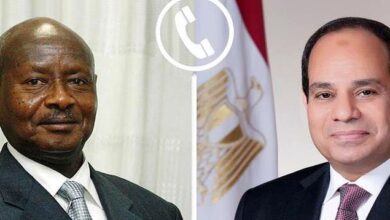The aspiration of becoming president was long stymied by the decades-long monopolization of power in Egypt. However, 25 January revolution has awoken a sense in many Egyptians that anyone can wear the title of president.
Although Hazem Helaly, a 21-year-old student at the Faculty of Economics and Political Science, has reservations about the constitutional amendments, he thinks that some of them removed the obstacles that long stood in the way of holding free and fair elections.
The amended Article 76 stipulates that a candidate must receive the support of at least 30 members of parliament or gain the votes of 30 thousand citizens across 15 governorates. It also states that any political party that has members who obtained at least one seat in the People’s Assembly or Shura Council has the right to nominate a presidential candidate.
“In past times, it was almost impossible for any independent candidate to meet the criteria for running in elections due to stringent regulations which deprived Egyptians from living in a democratic country,” said Helaly.
Helaly’s father, who works as an ambassador, instilled the love of his country in his son from early childhood. “I have always dreamed of becoming president but the country’s widespread corruption and the charade of the 2005 presidential elections shattered all my hopes of realizing democracy. But the uprising has proved that young people are the main proponents of progress and freedom.”
Helaly’s hope was revived after the revolution. He believes that several young candidates will run for president in coming years, and he hopes to be one of them one.
Michael Botrous, a 39-year-old economist, believes that 25 January revolution is a turning point in Egyptians’ lives, especially for Copts who had long suffered from sectarian strife. “I used to feel that Egypt is not my home and I was always thinking of traveling abroad. But after the constitutional amendments that give the right to any citizen regardless his religion to run in the presidential elections, I’ll stay to defend my rights and vote for a Christian presidential candidate if I find him appropriate,” he said.
According to official statistics, Copts – the vast majority of Egyptian Christians – represent around 10 percent of Egypt’s population.
Since 2009, Egypt has witnessed sectarian clashes that claimed many lives, including ones in Imbaba on 7 May and 8 May that resulted in the death of 15 people and the injury of hundreds. Not all Copts are optimistic; some fear that their situation will worsen as Muslim extremists in the country become emboldened in the wake of former President Hosni Mubarak’s ouster.
However, Botrous regards the amendments as a first step to move beyond years of religious persecution and encourage Christians, including himself, to participate in political life and hold important posts.
Amal Fathy, a manager at a ministry, agrees with Botrous and said that following the revolution, equal opportunities have been opened up for all citizens regardless of their gender, religion or class.
“It is time for Egyptian women to prove their capability to become the head of the state. Maybe not in the next couple of terms, but it is quite possible in the future,” she said citing women who have served as presidents in three Latin American countries.
“It’s time to change the stereotypical image of women’s role in Eastern societies, which is based on gender bias.” Fathy thinks women can lead countries as well as men so long as they are competent and experienced.
Yehia Al-Shahed, a businessman who spent most of his life abroad, said that the revolution revived his sense of patriotism and ownership. Consequently, he decided to settle down in Egypt and invest his money in his own country. “I was one of the millions who lost hope that our country would change and get liberated from Mubarak’s dictatorship especially after the conspiracy of political succession,” Al-Shahed said. “I even refrained from casting my vote, but now I believe that Egypt is enjoying democracy like any developed country that gives its citizens the freedom to determine their future.”
Al-Shahed is proud of his nationality and glad that he never acquired another so that he might one day join a political party and field himself as presidential candidate.
The amended Article 75 stipulates that the elected president must be Egyptian and his parents should not have acquired any other nationality. The president should also not be married to a foreigner.
“I won’t seek to obtain another nationality for my children either so when they grow up, they’ll have the opportunity to enter the political scene.”




